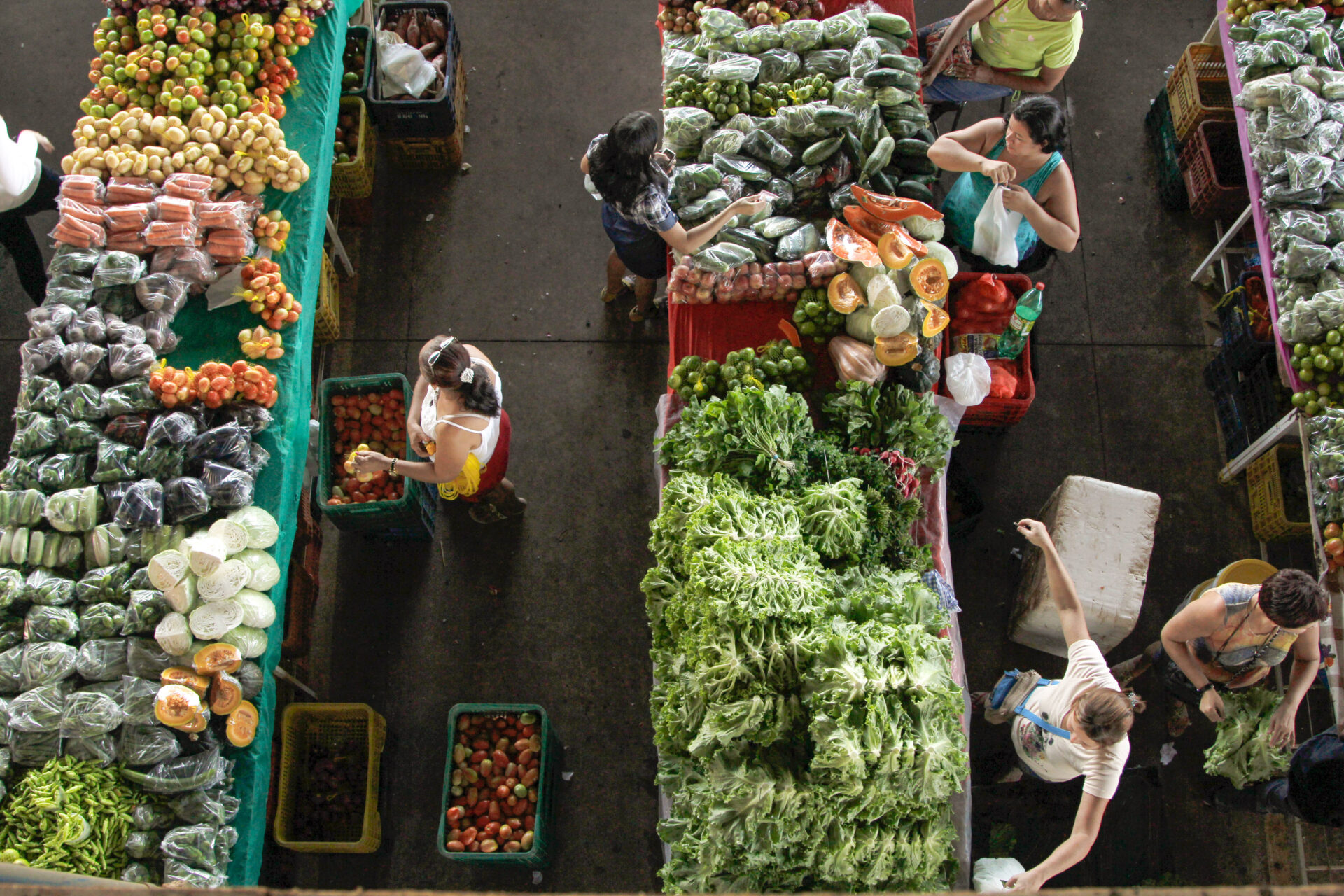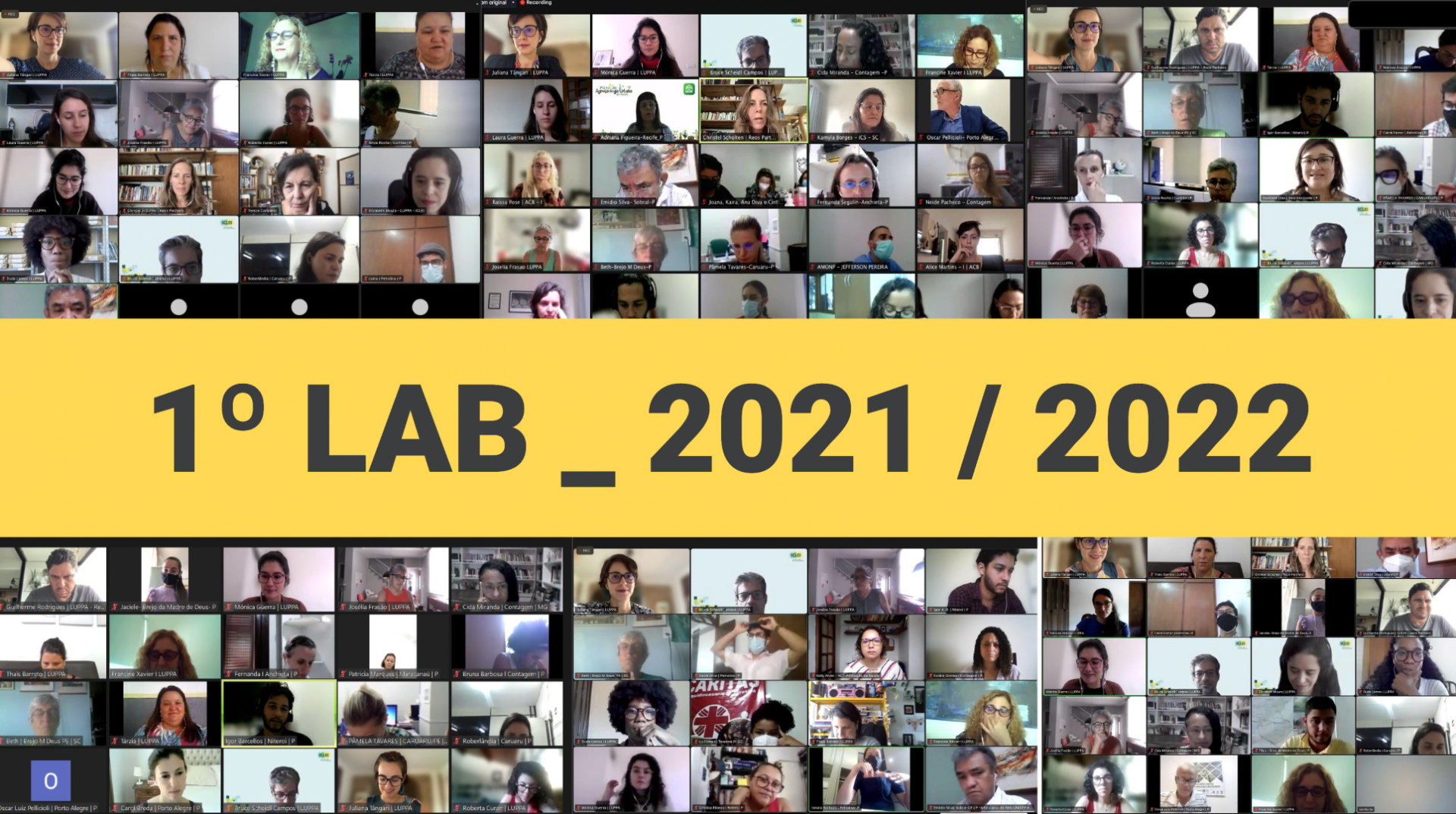Urbanisation is an aspect of globalisation which has been massively transforming our societies for the past century
……
Currently, over 50% of all people globally live in cities1. In Latin America, this number is even higher, with urbanisation at around 80%2. More than that, it is projected that by 2050, 90% of Latin Americans will live in cities.
Such a sudden influx of people to cities can lead to various challenges related to the reorganisation of life, particularly when it comes to meeting the demand for food. Thus, thinking about innovative ways to collaborate at the local level to ensure healthy, nutritious food reaches all members of society has now become pivotal. To do so while optimising natural resource use and reversing the effects of biodiversity loss is the other big challenge.
One initiative which has taken on this task is the Lab on Urban Food Policies (LUPPA)– a project by Comida do Amanha: a food-focused think-tank working on developing a systemic transformation towards sustainable and healthy food systems in Brazil, and also in partnership with ICLEI South America. To learn more about this initiative, 50by40 reached out to Juliana Tângari and Mónica Guerra, Directors from Comida do Amanhã, and enquired about their work on assisting local actors in transforming cities’ public food policy through the use of an immersive social lab.

Can you tell us more about Comida do Amanha’s work?
Monica: At Comida do Amanha, we believe that making a systemic transition needs an approach which integrates different ways of looking into food systems. Considering that, our work is divided into three main aspects: Food and Climate, Food and Cities and Food and Culture. The three areas are always connected, they help us organise our work: We focus our work in the urban territories, putting cities in the spotlight of food systems transformation. We are also aware that our food systems transformation necessarily demands an approach on Food and Climate, as a healthy food system is also one that works within our planetary boundaries; and Food and Culture as we consider the need for a culturally integrative perspective in terms of sustainable transition and food sovereignty – context matters.
In terms of targets, we have two main courses of action. The first is about raising awareness and providing people with the right information so that they make better choices but also so that they know what food systems are in order to start thinking systemically. The second one is advocacy. We believe that there is a need for shifts in policy for change to take place- which needs political commitment. This is where our primary project- the Lab on Urban Food Policies (LUPPA), comes into the picture.
Besides our project work, we also make consultations, facilitate a cooperative network of local partnerships, and act as a hub for debates and independent dialogues on food systems in Brazil.
What was the main motivation behind initiating LUPPA?
Juliana: LUPPA was born as a product of a very specific political and economic environment. Fighting hunger was part of Brazil’s government policy, and for a long time, we had a very well-structured federal policy outlining the responsibilities of local actors in terms of food systems, distributing state funds, and providing guidance and advance.
The change in the federal government in 2019 shifted the priority of national policies and made this national system come apart, leaving a vacuum on all political levels. Further with the pandemic, local municipalities faced new challenges without clear guidance from the national system. Cities quickly realised the importance of empowering themselves and finding solutions.
We wanted to do something to fill the vacuum left at the national level and create a collaborative space for exchanging ideas and possible solutions among actors involved in food policy on the local level. The project started by activating a network of partners and developing a comprehensive strategy outline. At the time, we were still trying to understand our role as an organisation.
Eventually, we developed the idea of creating an immersive lab– a sort of social laboratory, acting as an interactive space for municipalities and other local actors to be able to learn about the importance of food systems in their line of work, be it school feeding or public food procurement, and consequently to work on collaborating and drafting the necessary policies and procedures. The partnership with ICLEI South America also contributed to tailoring the activities and deliveries of the project according to what local governments needed.
Can you share your experience with running the first round of the LAB? What did the process look like?
Juliana: We launched the first edition of the LAB last year, which ran between August 2021 and April 2022. The lab structure included a series of webinars which we conducted at the very beginning touching upon various food systems issues faced by cities. Simultaneously, we also launched a call for cities and local administrations calling for the mayor to sign a letter of commitment for the advancement of food security and the development of food systems policy structure in their municipality, and a call for “mentor cities” that could give peer-to-peer cooperation on specific topics – a precious contribution of ICLEI South America to LUPPA’s design.
Our goal for our first edition of the LAB was 10 cities, with at least 4 from the Amazon region. At the end of the one-month registration period, 23 cities had committed themselves to the project!
We started by conducting interviews with representatives of each city to get the right idea about their expectations and understand their views, challenges, and ideas about building food systems trajectories. Next, we ran a series of 3-hour weekly online workshops- 9 overall, with a wide range of local actors involved in either local administration or civil society as participants.

Would you consider the first edition to be a success? What would you say were the main challenges and learning opportunities that you will take from the first edition going forward?
Monica: We definitely consider our first edition of the LAB to be a success. The main reason for this success stems from the level of preparation it took us to develop the methodology for the project. Before we started, we took a whole year studying the process of designing social labs and facilitating food dialogues. We drew inspiration from projects and initiatives such as the Southern Africa Food Lab and different peer-to-peer city support networks such as the Sustainable Cities Program in Brazil and ICLEI’s CityFood network.
Juliana: For the future, we feel it is essential to consider how practical policy solutions can be implemented locally and how a toolkit for designing intersectoral food policy strategies can be drafted. A few aspects that were highlighted for us through the process include occupying public space with community gardens, opening public kitchens and food banks to fight hunger and malnutrition, making local government a partner in local food production projects, as well as reconsidering their role in terms of providing support for possible solutions.
What are your future plans for LUPPA?
The main aspect of our plans moving forward is the further development of our peer-to-peer mentorship and cooperation programme among cities which have already participated and shown promising results and new entrants in the second edition of the LAB wherein they exchange technical support and ideas, and work together on anticipating and solving challenges.
We are also working on expanding our partner network and developing useful content for our website. For example, we are working on an interactive map of the food programmes of participating municipalities and see how local research institutions can use the collected information to monitor local food policies in Brazil.
And finally, we want to expand the scope of the project, by perhaps developing a regional food systems lab in the future.
How can 50by40 and the partner network support you in furthering your vision?
Monica: An important goal for us this year is to be able to showcase LUPPA’s work internationally to generally bring awareness about our work and also seek out potential donors.
Juliana: We also need support in terms of expanding our network of cooperation and developing a relationship with other partner organisations with an interest in Brazil that could support our work.
And finally, we would like to create a document outlining the project’s methodology and showcasing its work and results that can serve as a useful blueprint for other organisations with similar ideas so they can adapt it to their needs and local context. While developing such a document and having it translated into English is not our priority right now due to financial limitations, it will be interesting to see if we can find support for such translation and have different versions of the same. Click here to learn more about LUPPA and our work. You can also write to us at juliana@comidadoamanha.org or monica@comidadoamanha.org to explore potential collaborative opportunities!
